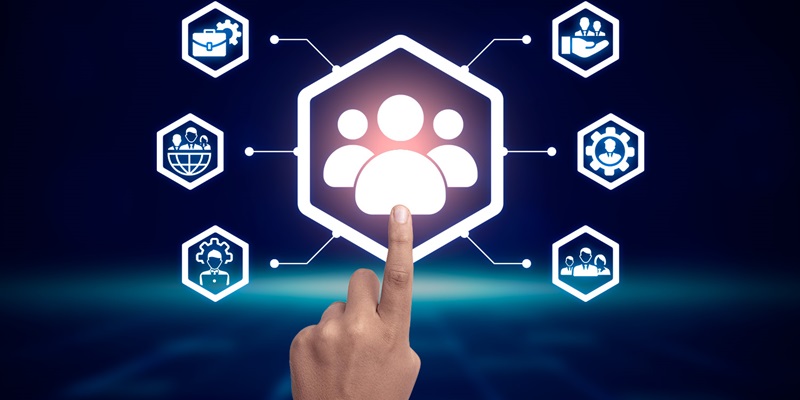In the dynamic landscape of human resources control, the function of generation has been pivotal in streamlining tactics, enhancing performance, and fostering employee engagement. HR software has emerged as a powerful tool in revolutionizing the way organizations manage their workforce. This article explores the various ways in which HR software has transformed human resources management and offers a glimpse into its wide-ranging benefits.
Efficient Talent Acquisition
In the cutting-edge job market, where competition for top talent is fierce, HR software plays an essential role in optimizing the recruitment process. By leveraging advanced applicant tracking systems and automated resume screening, HR professionals can efficiently identify top talent. Additionally, HR software streamlines interview scheduling, simplifies background checks, and centralizes communication with candidates. These features not only expedite the hiring process but also contribute to a positive candidate experience, enhancing the organization’s employer brand.
Streamlined Onboarding Processes
The onboarding experience sets the stage for an employee’s journey within an organization. HR software programs enable a seamless onboarding experience by automating paperwork and digitizing essential onboarding forms. Through user-friendly interfaces and intuitive workflows, new hires can quickly and securely complete necessary forms. Additionally, HR software provides online training modules, allowing employees to familiarize themselves with company policies, procedures, and job-specific training. By digitizing and centralizing the onboarding process, HR software ensures that new hires integrate quickly into the organizational culture.
Performance Management and Feedback
Traditional annual performance reviews are giving way to continuous performance management facilitated by HR software. Through performance management modules, organizations can set goals, track progress, and provide regular feedback to employees. Real-time performance analytics enable managers to identify strengths and areas for improvement, enabling timely coaching and development opportunities. The ability to provide immediate feedback fosters a culture of ongoing learning and growth within the organization, leading to increased employee productivity and job satisfaction.
Employee Engagement and Wellbeing
Employee engagement and well-being are crucial factors in creating a productive and positive work environment. HR software programs play a pivotal role in improving them. From pulse surveys to sentiment analysis, these tools provide valuable insights into employee morale and satisfaction levels. By gathering real-time feedback, organizations can identify areas of concern and proactively address them. Furthermore, HR software facilitates the implementation of employee recognition programs, enabling organizations to acknowledge and appreciate their employees’ contributions. By nurturing a culture of engagement and well-being, HR software contributes to higher employee retention rates and overall organizational success.
Data-Driven Decision Making
HR software enables HR specialists and business leaders to make informed decisions based on real-time analytics. By collecting and analyzing data on employee performance, recruitment metrics, and workforce demographics, HR professionals can identify trends and patterns. These insights empower decision-makers to optimize talent management strategies, align employee skills with organizational goals, and plan future workforce needs. Data-driven decision making ensures that organizations allocate resources effectively and make strategic decisions that drive business success.
Compliance and Risk Management
Compliance with labor laws, industry regulations, and internal policies is crucial for organizations. HR software automates compliance processes, ensuring that companies adhere to these requirements. With built-in audit trails and automated notifications, organizations can track compliance activities and mitigate the risk of legal and financial sanctions.
HR software also assists in managing employee data securely and protecting sensitive information, ensuring data privacy compliance. By automating compliance procedures, HR software reduces administrative burdens and allows HR professionals to focus on strategic initiatives.
Flexible Workforce Management
The rise of remote work and flexible work arrangements has changed the traditional concept of workforce management. HR software adapts to this shift by providing tools for remote collaboration, time tracking, and performance monitoring. With features like virtual team spaces, video conferencing, and project management tools, HR software fosters communication and collaboration among remote teams. Additionally, time tracking modules and performance dashboards enable managers to monitor productivity and ensure accountability, irrespective of physical location. The flexibility offered by HR software empowers organizations to embrace the evolving work landscape and leverage the benefits of remote work.
Succession Planning and Skill Development
Identifying high-potential employees and formulating succession plans are critical for ensuring organizational resilience and continuity. HR software aids in this process by evaluating employee performance, potential, and readiness for leadership roles. These tools provide a comprehensive view of employee skills, certifications, and development needs, enabling organizations to proactively plan for future leadership requirements. Additionally, HR software facilitates employee skill development by offering personalized learning resources and training modules. Through targeted development initiatives, organizations can nurture talent within their workforce and fill critical roles in a timely manner.
In conclusion, HR software stands as a beacon of innovation, providing a plethora of benefits that extend far beyond simple administrative tasks. From efficient talent acquisition to streamlined onboarding processes, and from performance management to employee engagement and well-being, HR software has transformed human resources management. With its data-driven decision-making capabilities, automation of compliance and risk management, flexible workforce management tools, and support for succession planning and skill development, HR software remains an indispensable asset for organizations seeking to maximize their human capital potential. Embracing HR software empowers organizations to optimize processes, enhance productivity, and foster a culture of engagement and continuous growth.

